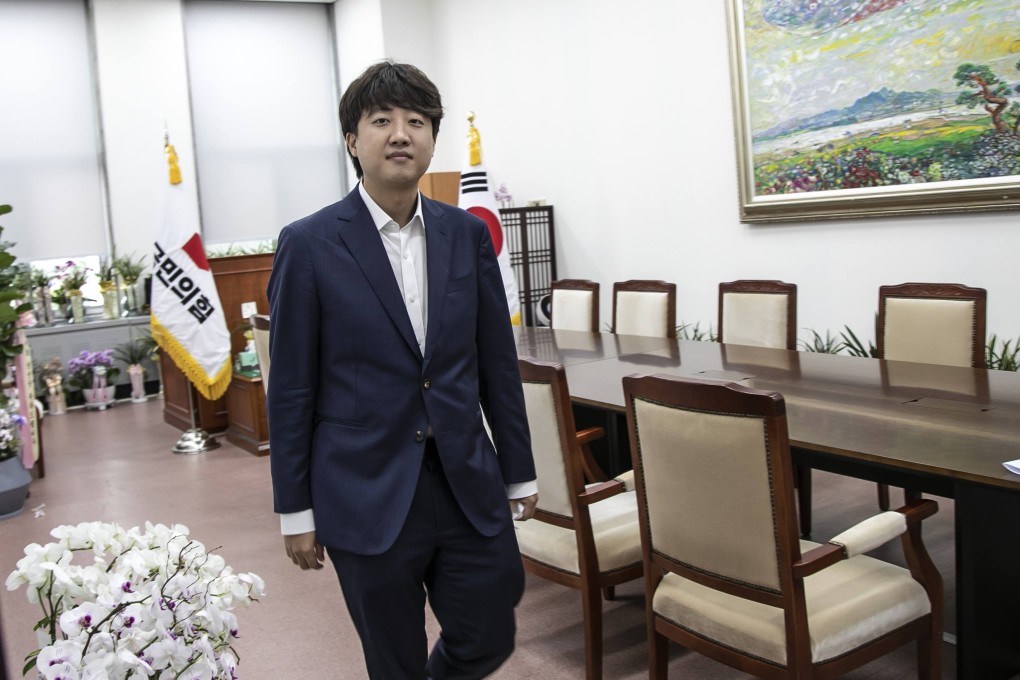Lee Jun-seok, South Korea’s youngest ever party leader, vows to confront China’s ‘cruelty’, including policies in Hong Kong
- Lee, 36, is the newly installed leader of the People Power Party but will be too young to run for president next year
- He took part in Hong Kong’s 2019 protests and compared them to South Korea’s uprising in the 1980s

The 36-year-old leader of South Korea’s biggest opposition party said his fellow millennials will push back against Chinese “cruelty” in places like Hong Kong, indicating a tougher line with Beijing if his political group regains power.
Harvard-educated Lee Jun-seok, the newly installed leader of the People Power Party (PPP), said generational change has been taking place and he aims to harness it at home to return his conservative group to the presidency, and abroad to revisit Seoul’s relations with the international community.
“We’re definitely going to have to fight against the enemies of democracy,” said Lee, the youngest person ever selected to lead a major South Korean political party.
“We joined other Hongkongers in protests, pushing through police barricades,” he said. “They were chanting the song March for the Beloved [a Gwangju protest song] and appealed for support from Korea.
“The protests were really fierce. Facing police troops who were moving on us, wielding shields and batons, I identified myself as a politician from Korea and ... live streamed their violent acts to the outside world. But the Korean government turned away from Hong Kong.”